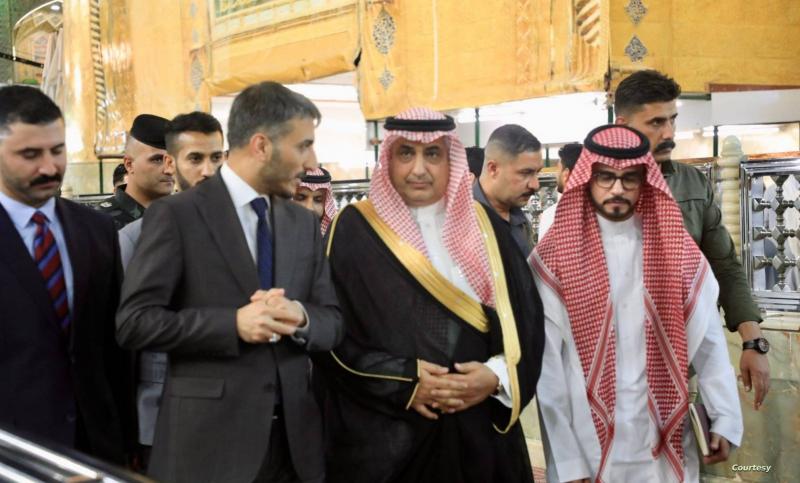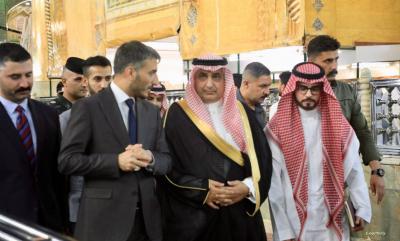Relations between Saudi Arabia and Iraq are currently witnessing a phase rich in positive actions and statements. Recently, as previously mentioned, Saudi Ambassador to Iraq Abdulaziz Al-Shammari visited the most significant Shiite cities in the world, not just in Iraq: Najaf and Karbala, where he met with some prominent Shiite authorities, such as Ishaq Al-Fayyad and others. This was preceded by the opening of a new air route between Dammam in the Eastern Province of Saudi Arabia and Najaf, a city that frequently hosts "visits" by Saudi Shiite citizens, similar to other Shiite communities in various countries.
Indeed, the relationship between Riyadh and the Shiites of Iraq, along with their religious leaders, is not a recent development; however, it is undeniably experiencing a prosperous and renewed momentum. This is a commendable endeavor and a wise action that should be amplified, accumulated, and sustained to thwart those who seek to ignite the flames of discord, as this is their profession and passion.
If we return to both recent and historical contexts, we recognize King Abdulaziz's commitment to fostering relations with Iraq and Iran, exemplified by appointing a prominent figure he trusted, Mr. Hamza Ghouth. From more recent history, we recall King Abdullah bin Abdulaziz's openness towards Iranian President Rafsanjani and the visit of then-Saudi Foreign Minister Adel Al-Jubeir to Baghdad, which marked the first visit by a high-ranking Saudi official to Iraq since 2003.
In 2020, Saudi Arabia and Iraq decided to work on re-opening the main Arar border crossing between them, which had been closed for over 33 years following Iraq's invasion of Kuwait. "Head of the Baghdad Studies Center" Manaa Al-Moussawi, in remarks to Al-Hurra, commented on the Saudi openness through its ambassador to Iraq towards the Shiite community, stating that: "Previously, there was a religious conflict that sometimes escalated to the point of excommunication, prior to the policy of openness initiated by (Crown Prince) Mohammed bin Salman, which has had a clear impact on the region and the world."
He added: "The ambassador's visit to Shiite scholars indicates the thawing of relations between the two countries, addressing the sectarian issues that existed among religious leaders." I believe that the role of religious figures in this context is not all-encompassing; rather, the political ventures particularly in Iraq, as well as Iran, Lebanon, and Yemen, "resist" any Iraqi openness towards Saudi Arabia, which is central to the Arab identity and the cornerstone of Arab security.
There are connections between Iraq and Saudi Arabia that cannot be overlooked. Who can separate the tribes of Samawah, Basra, Najaf, Amara, and Diwaniya, not to mention Anbar and Mosul, from Najd, Al-Ahsa, and Hejaz?




